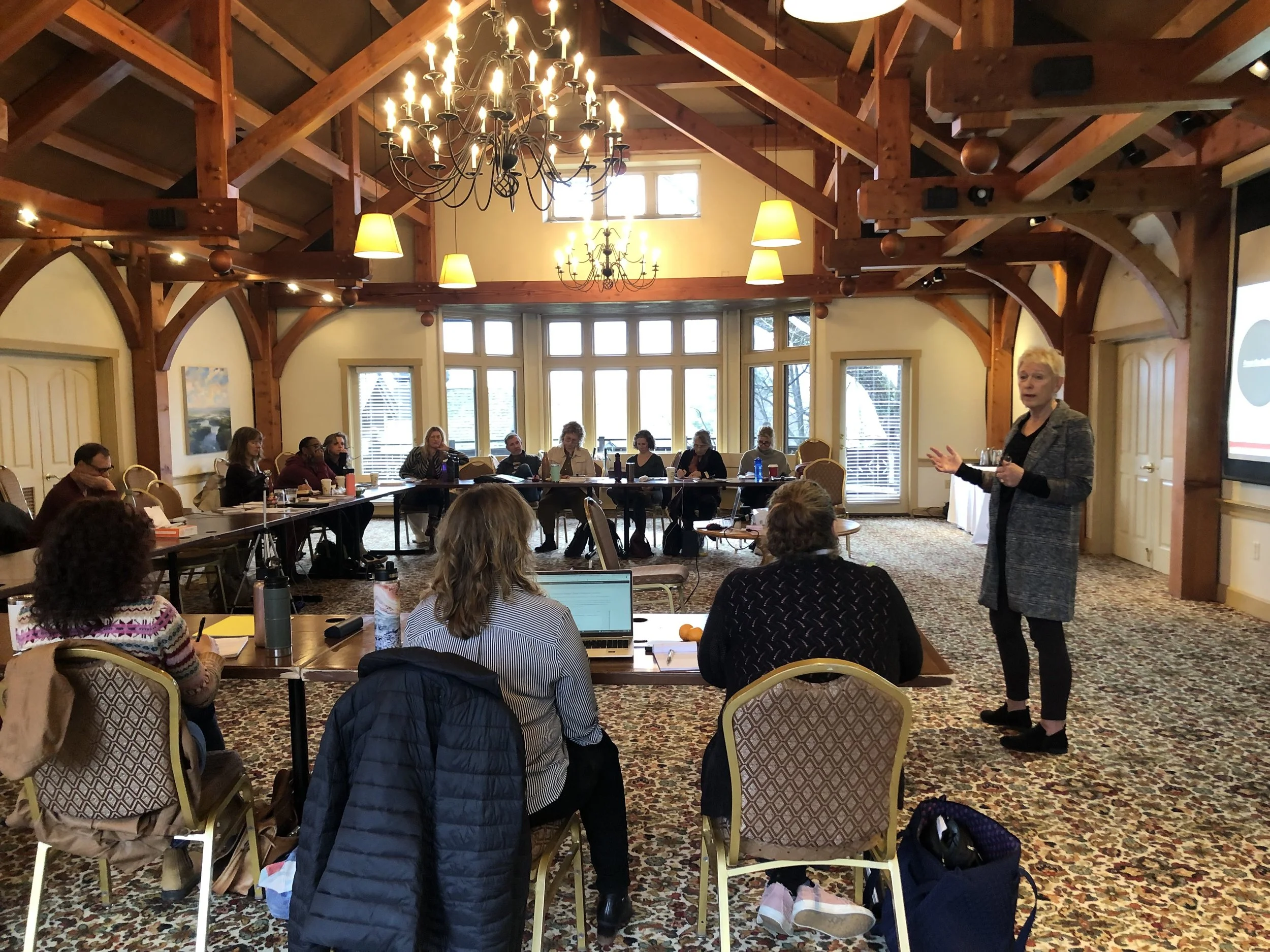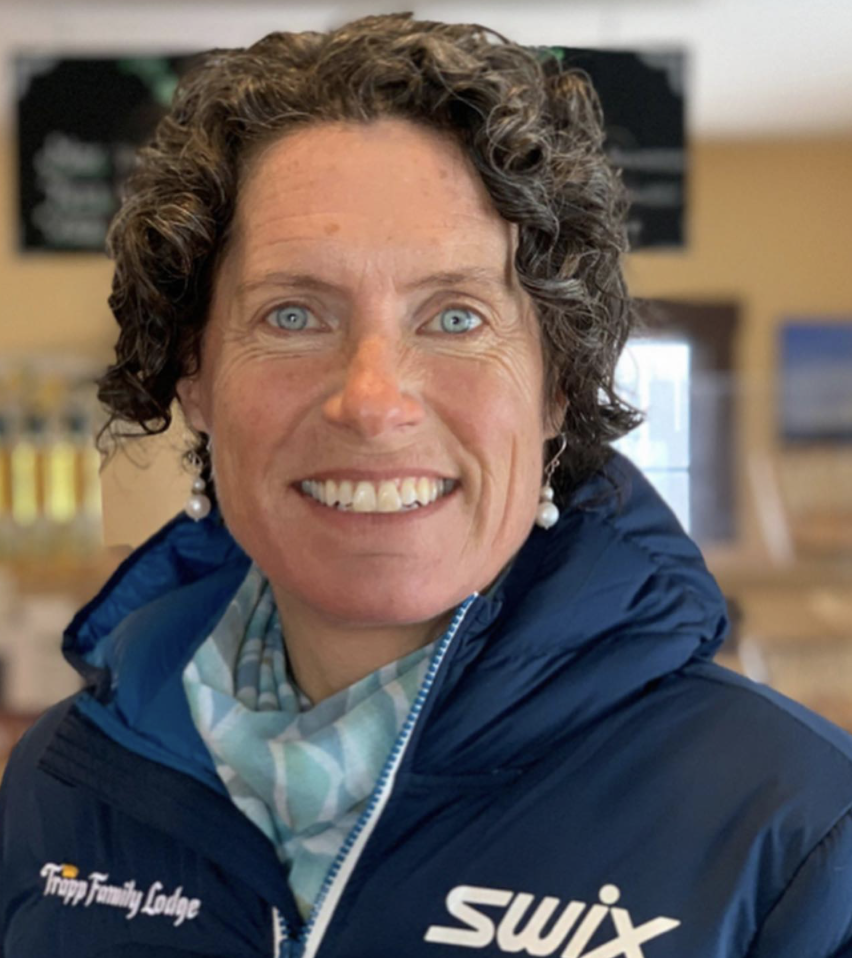
Help us Grow
the Center for Real Dialogue
Polarization, stereotyping, and destructive rhetoric are everywhere. We see it in government, schools, workplaces, places of worship, and even our neighborhoods. Addressing this is urgent. How we talk to one another matters. How we listen matters even more. Engaging in healthy disagreements supports kinder and better-informed personal lives, higher-functioning groups and organizations, democratic processes in our communities, and more effective government.
Principles of Real Dialogue:
Know Thyself: As human beings we have a distinctive self-awareness: we can be aware of our thoughts, feelings and perceptions. Because of this we are not dominated by fight-flight instincts and have the option of welcoming differences and disagreements. To learn healthy conflict, we must understand our self-awareness and emotions so that we don’t exhaust ourselves trying to control others or promote ourselves. When we embrace our first-person awareness and experiences as unique and limited, we see why we cannot agree about the “world” we see/hear/feel and how we need to learn from our diverse perspectives.
Commit to Responsible Speaking and Listening: Real Dialogue requires taking responsibility for the limits of what we see/hear/feel. Our instincts will not guide us nor will our insights be infallible. When we speak modestly and listen responsibly, we can engage in healthy conflict to discover our own purposes and meaning, as well as the truth about our existence.
End Dehumanization: Dehumanization mistakes human beings for animals (who can be trained) or gods (who are perfect or infallible). This mistake, made through distorted self-awareness, can be corrected through healthy self-awareness that opens our curiosity to opposing views.
Learn from Defeat and Failure: Real Dialogue teaches us how to thrive in both winning and losing, while navigating our universal negativity bias (more negative than positive emotions). Being human, we know we will die and we learn about our mortality through healthy conflict. Neither war nor artificial intelligence will teach us how to thrive in healthy conflict and learn from defeat.
With your generous support we will:
Invest in a Public Education Series. The Center provides programs and trainings to help individuals from every walk of life develop the skills and methods of Real Dialogue.
Develop strategic partnerships. Demand for Real Dialogue is growing in Vermont and across the country. The Center is pursuing partnerships, including developing postsecondary curricula for educational institutions and creating a video series of Real Dialogues that illustrate two sides discussing timely and divisive current issues.
Create a scholarship fund. Stewarding talent by providing funding for fellowships will allow the Center to attract and train future mental health professionals with expertise in Real Dialogue skills and methods.
There are many ways to give, and all donations are tax-deductible to the full extent of the law. Gifts can be made online, through credit card transactions, personal checks, or from a Donor-Advised Fund.
Make gifts payable to:
Center for Real Dialogue
195 Calais Road
Worcester, VT 05682
EIN: 93-3507894
For more information about making a gift, please contact: Paula Emery at donate@realdialogue.org for assistance.
Read, Listen, and Watch
Finding Ourselves on Different Sides: The Skill and Method of Real Dialogue™ (Preview)
Our Impact
“We live — politically and psychologically — in a world of deaf ears, isolated silos, and grotesque caricature. For democracy to survive, we need to find ways to listen deeply, see others’ points of view, respect differences, and generate creative dialogue…. Dialogue Therapy and Real Dialogue have implications that extend far beyond couple therapy to conflict resolution and political change."
Jeremy Holmes, MD, Psychoanalyst and Attachment Researcher, University of Essex, UK
“A real therapy for the human heart cannot start with a directive for improvement, but must thoroughly understand and transform the reasons why the default outcome of human interaction is usually a failure of joy and connection. [Dialogue Therapy and Real Dialogue] have just that magical formula. [They] bring an incredible range of knowledge to the ongoing, felt and ailing interactions between people. In lucid description, Dialogue Therapy and Real Dialogue outline the primary mechanisms of relationship problems, as well as a stepwise and robust way out. Their unique incorporation of centuries of wisdom about the human condition with practical application can give practitioners and anyone in any relationship a distinct method for creating connections that are sustainable and vibrant."
Beth Jacobs, PhD, psychologist, Zen teacher and author of The Original Buddhist Psychology
“I think Real Dialogue is extremely useful in helping people understand each other and navigate difficult situations. When you start getting curious about other people and their points of view, it helps everyone understand each other better. I think Polly has done an excellent job of boiling down what Real Dialogue is: a wonderful three-way skill— speaking for yourself, listening mindfully, and remaining curious. I keep (those points) on my counter at home, so my kids can see them.”
Kristina Von Trapp Frame, Director, Trapp Family Lodge
“[Real Dialogue] is about…a state of openness and caring that relies on the powerfully articulated three C’s of commitment, constraint, and containment. We…honor and respect our differences with a commitment to them, a constraint in how we come to communicate with clarity and calm, and a containment of extremes of our emotions and impulses. We can view such a container of connection as built from the foundation of something called integration, the cultivation of differences while also creating connections. Integration gives rise to harmony; its blockage leads to chaos or rigidity.”
Daniel J. Siegel, MD, psychiatrist, Founder of Mindsight Institute, author of Brainstorm
Susan Lillich, PhD, Clinical Psychologist, Director of Clinical Training for Dialogue Therapy






